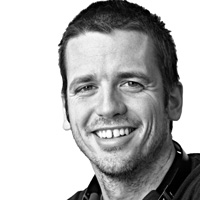“Every time you solve a problem you create a new one” — Kevin Slavin (1).
Are we trying to hard or not hard enough? In our quest to make the world data driven and quantifiable are we producing new problems? Are we so eager to make the world into a programmable sequence (algorithm) that we exclude the parts that make us sentient [able to perceive or feel things]? Meaning: if we want the computer to do all our work do we have to become computers?
In the book “Why the world needs anthropologists” (2) Dan Podjed, Meta Gorup, Pavel Borecky and Carla Guerrón Montero invite 11 anthropologists to share their stories about why now more than ever the world needs “cultural relativism, ethnography, comparison and context” (3).
All quotes below are from the introduction by Dan Podjed and Meta Gorup and the first article by Thomas Hylland Eriksen (the complete book is a gold mine).
“The world does not consist of straightforward facts and quantifiable models alone” — Thomas Hylland Eriksen, professor of social anthropology at the University of Oslo, Norway, p.9
“Embracing multiperspectivity, suspending judgement, acknowledging the fluidity of life and the importance of various inner and outer dimensions, answer big questions by studying very concrete phenomena [..] by listening to people’s stories.” — On Joana Breidenbach, serial entrepreneur, p.10
“Nolan is critical of the current interpretations of reality which are predominantly guided by numbers. To understand human diversity and complexity [..] we need to acknowledge the importance of context” — On Riall W. Nolan, Professor of anthropology at Purdue University, USA p.13
“It is impossible to address and resolve the pressing global issues merely by looking at numbers, statistics, figures and diagrams. Anthropology [.. enables] the collection of ‘thick data’ — in addition to ‘big data’ — and sheds a different light on a certain problem, helping us understand the world we live in more comprehensively” — On Christian Madsbjerg, ReD Associates p.13
“Anthropologists [..] are concerned with context, relationships and connections. The smallest unit that anthropologists study is not the isolated individual but the relationship between two people and their environment. Whereas the society is a web of relationships, culture , as activated between sentient bodies, not inside them, is what makes communication possible. To a great extent, we are constituted by our relationship with others, which produces us and gives us sustenance, and which confirms or challenges our values and opinions” — Thomas Hylland Eriksen, Ethnography in all the right places, why the world needs anthropologists
“Anthropologists resist simplistic accounts of human nature and accept that complex realities tend to have complex causes.” — Thomas Hylland Eriksen, Ethnography in all the right places, why the world needs anthropologists p.22
“He who speaks no foreign language knows nothing about his own” — Goethe p.24
“Make it as simple as possible, but not simpler” — Albert Einstein, page 22
Resources:
- Kevin Slavin, https://youtu.be/9Goa1Y9OBHU
- Why the world needs anthropologists, https://www.routledge.com/Why-the-World-Needs-Anthropologists/Podjed-Gorup-Borecky-Montero/p/book/9781350147133
- Thomas Hylland Eriksen, Why the world needs anthropologists

